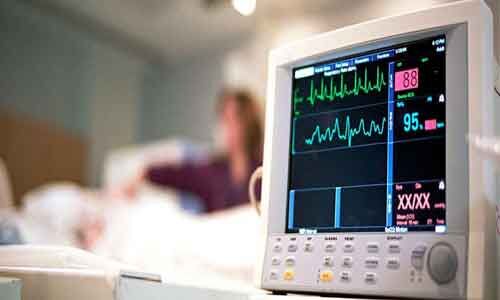- Home
- Medical news & Guidelines
- Anesthesiology
- Cardiology and CTVS
- Critical Care
- Dentistry
- Dermatology
- Diabetes and Endocrinology
- ENT
- Gastroenterology
- Medicine
- Nephrology
- Neurology
- Obstretics-Gynaecology
- Oncology
- Ophthalmology
- Orthopaedics
- Pediatrics-Neonatology
- Psychiatry
- Pulmonology
- Radiology
- Surgery
- Urology
- Laboratory Medicine
- Diet
- Nursing
- Paramedical
- Physiotherapy
- Health news
- Fact Check
- Bone Health Fact Check
- Brain Health Fact Check
- Cancer Related Fact Check
- Child Care Fact Check
- Dental and oral health fact check
- Diabetes and metabolic health fact check
- Diet and Nutrition Fact Check
- Eye and ENT Care Fact Check
- Fitness fact check
- Gut health fact check
- Heart health fact check
- Kidney health fact check
- Medical education fact check
- Men's health fact check
- Respiratory fact check
- Skin and hair care fact check
- Vaccine and Immunization fact check
- Women's health fact check
- AYUSH
- State News
- Andaman and Nicobar Islands
- Andhra Pradesh
- Arunachal Pradesh
- Assam
- Bihar
- Chandigarh
- Chattisgarh
- Dadra and Nagar Haveli
- Daman and Diu
- Delhi
- Goa
- Gujarat
- Haryana
- Himachal Pradesh
- Jammu & Kashmir
- Jharkhand
- Karnataka
- Kerala
- Ladakh
- Lakshadweep
- Madhya Pradesh
- Maharashtra
- Manipur
- Meghalaya
- Mizoram
- Nagaland
- Odisha
- Puducherry
- Punjab
- Rajasthan
- Sikkim
- Tamil Nadu
- Telangana
- Tripura
- Uttar Pradesh
- Uttrakhand
- West Bengal
- Medical Education
- Industry
Empagliflozin rapidly improves symptoms and QoL in Hospitalised AHF Patients: EMPULSE Trial

USA: Treatment with empagliflozin in patients hospitalized for acute heart failure (AHF) produces clinical benefits and improves the quality of life, physical limitations, and symptoms, a recent study has found. The benefits, regardless of the degree of symptomatic impairment at baseline, were seen as early as 15 days and were maintained through 90 days.
These are the results from the EMPULSE trial published in Circulation, the journal of the American Heart Association (AHA).
Patients hospitalized for AHF experience poor health status including poor quality of life and a high burden of symptoms and physical limitations. Sodium-glucose cotransporter 2 (SGLT2) inhibitors are known to improve health status in chronic HF, but their impact on these outcomes is not well characterized in AHF.
Considering the above, Mikhail N. Kosiborod, Saint Luke's Mid America Heart Institute, Kansas City, MO, and colleagues aimed to investigate the effects of the SGLT2 inhibitor empagliflozin on symptoms, physical limitations, and quality of life, using the Kansas City Cardiomyopathy Questionnaire (KCCQ) in the EMPULSE trial.
For this purpose, the researchers included 530 patients hospitalized for AHF. They were randomized to receive empagliflozin 10 mg daily or a placebo for 90 days. Assessment of KCCQ was done at randomization and 15, 30, and 90 days.
They examined the effects on the primary endpoint of clinical benefit (hierarchical composite of all-cause death, heart failure events, and a 5-point or greater difference in KCCQ Total Symptom Score (TSS) change from baseline to 90 days) posthoc cross the tertiles of baseline KCCQ-TSS.
In pre-specified analyses, evaluation of changes (randomization to Day 90) in KCCQ domains, including Physical Limitations (PLS), TSS, quality of life (QoL), overall summary (OSS), and clinical summary scores (CSS) was done using a repeated measures model.
Based on the study, the researchers found the following:
- Baseline KCCQ-TSS was low overall (mean, SD; 40.8, 24.0 points).
- Empagliflozin-treated patients experienced greater clinical benefit across the range of KCCQ-TSS, with no treatment effect heterogeneity (win ratio from lowest to highest tertile: 1.49, 1.37, and 1.48, respectively).
- Beneficial effects of empagliflozin on health status were observed as early as 15 days and persisted through 90 days, at which point empagliflozin-treated patients experienced a greater improvement in KCCQ TSS, PLS, QoL, CSS, and OSS (placebo-adjusted mean differences: 4.45; 4.80; 4.66; 4.85; and 4.40 points respectively).
To conclude, in patients hospitalized for AHF, initiation of empagliflozin produced clinical benefits regardless of the degree of symptomatic impairment at baseline; and improved symptoms, physical limitations, and quality of life, with benefits seen as early as 15 days and maintained through 90 days.
Reference:
The study titled, "Effects of Empagliflozin on Symptoms, Physical Limitations and Quality of Life in Patients Hospitalized for Acute Heart Failure - Results From the EMPULSE Trial," was published in the journal Circulation.
Dr Kamal Kant Kohli-MBBS, DTCD- a chest specialist with more than 30 years of practice and a flair for writing clinical articles, Dr Kamal Kant Kohli joined Medical Dialogues as a Chief Editor of Medical News. Besides writing articles, as an editor, he proofreads and verifies all the medical content published on Medical Dialogues including those coming from journals, studies,medical conferences,guidelines etc. Email: drkohli@medicaldialogues.in. Contact no. 011-43720751


